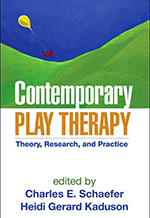
Click on image to view course webpage
This new online CE course addresses a variety of ethics topics in the form of seven archived articles from The National Psychologist and is intended to provide psychotherapists of all specialties with a set of brief, practical tips for dealing with ethical dilemmas that present themselves in everyday practice.
Topics Include:
Office ‘Bookstore’ Should Not be for Profit
By Jeffrey E. Barnett, PsyD, ABPP
Psychologists frequently make recommendations to clients for books to read, workbooks and CDs to use, and even movies or television shows to view. In fact, bibliotherapy, the integration of such media into ongoing psychotherapy is a widely used and often highly effective addition to psychotherapy. Learn the issues involved to avoid crossing any boundaries.
Ethical, Effective Marketing for Your Private Practice
By Susan Giurleo, PhD
Many psychologists are cautious, confused and unsure of how to market their work. Many worry that marketing is unethical and something that we should not consider as we pursue a private practice career. Learn effective, ethical marketing techniques you can use to market your practice.
Law Impacts Psychology
By Richard Lawlor, PhD, JD
Over the past several years many articles have appeared in this newspaper for practitioners dealing with various aspects of psychology and the law. Some dealt with a substantive area of psychology and its impact on the law, for example research on children’s memories and the implications for interviewing children and using them as witnesses. Discover the areas of law that psychologists need to be aware of, and understand.
Duty to Warn is Now Duty to Protect
Review by Milton F. Shore, PhD, ABPP
Book review of: The Duty to Protect: Ethical, Legal and Professional Considerations for Mental Health Professionals by Werth, J.L., Welfel, E. and Benjamin, G.A.H. (Eds.) 2009. Washington, D.C. American Psychological Association.
Test Givers Must be Qualified
By Jeffrey E. Barnett, PsyD, ABPP
As a busy professional, it makes great sense to utilize others when it is appropriate to do so. This can be a much more efficient way to work than doing everything yourself. But, the situation is more complex when clinical activities are involved. Learn the ethical issues, laws and regulations for use of non-licensed subordinates in the provision of clinical services.
To Collect or Not to Collect?
By Ofer Zur, PhD
In today’s economy and financial difficulties the questions regarding fees and debt collection from clients seem to be more frequent and more relevant. In times of economic crisis, many people who have lost their homes or jobs understandably seek psychotherapy to better cope with stress due to mounting debt and loss. Explore the relevant professional, relational, clinical, ethical, legal and unintentional consequences aspects of this issue.
Duty to Warn, Protect Differs in HIV Cases
By Jeffrey E. Barnett, PsyD, ABPP
The situation where a client who is HIV-positive or who has AIDS reports having unprotected sex with another person or having done so in the past raises a number of ethical challenges. Explore the relevant issues of informed consent, confidentiality and exceptions to confidentiality, laws concerning the duty to warn and protect when threats of dangerous behavior are made and case law that may impact these areas.










Like this:
Like Loading...














